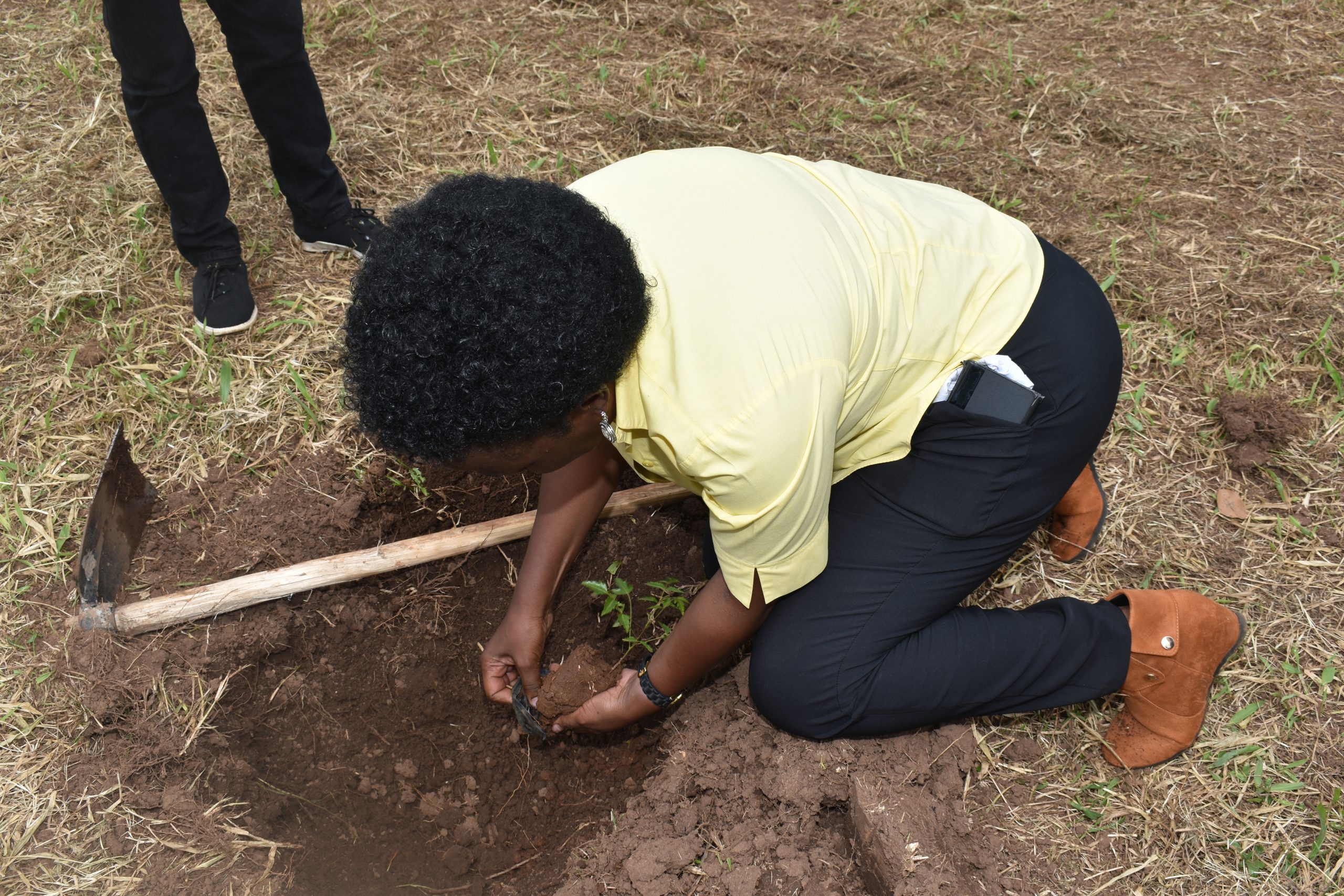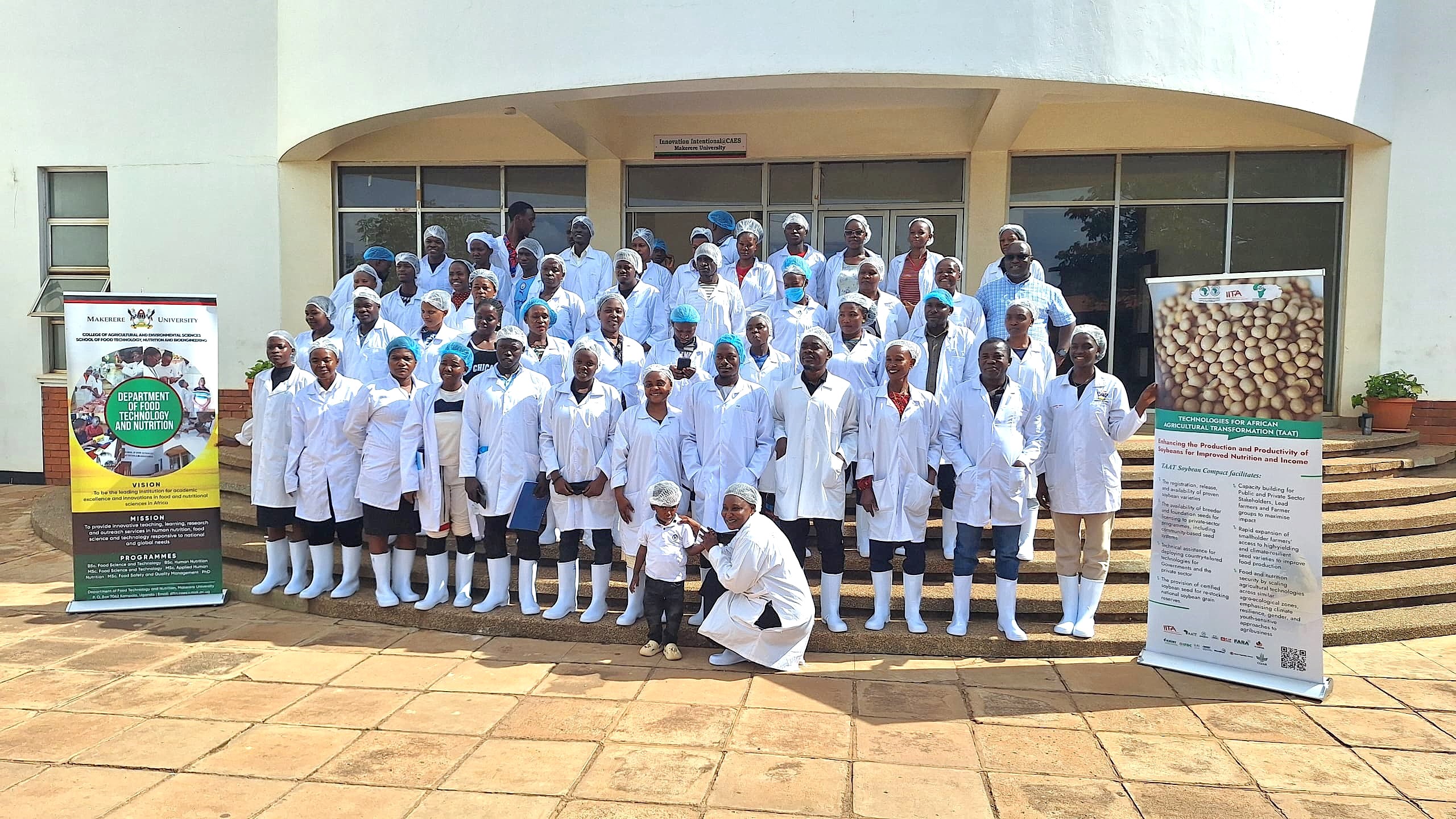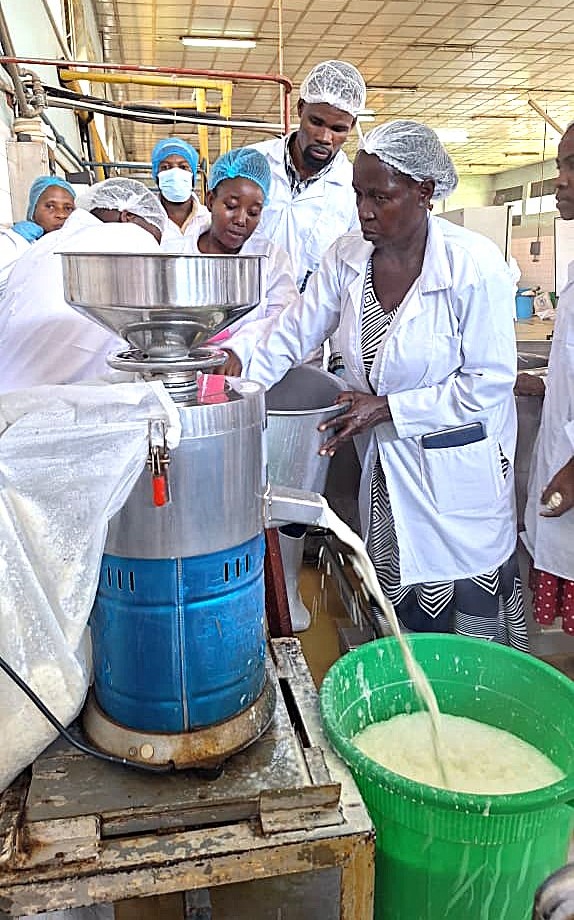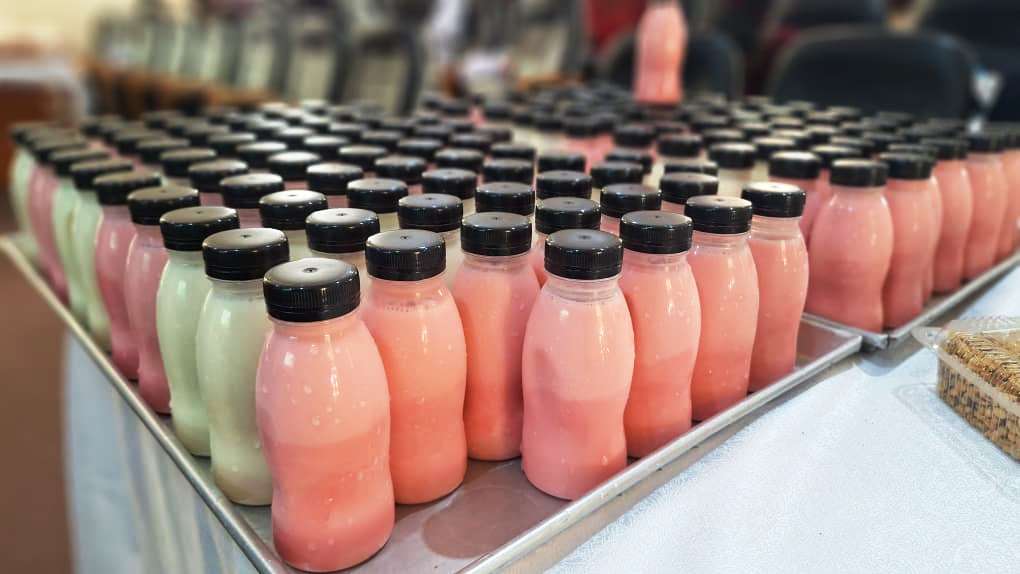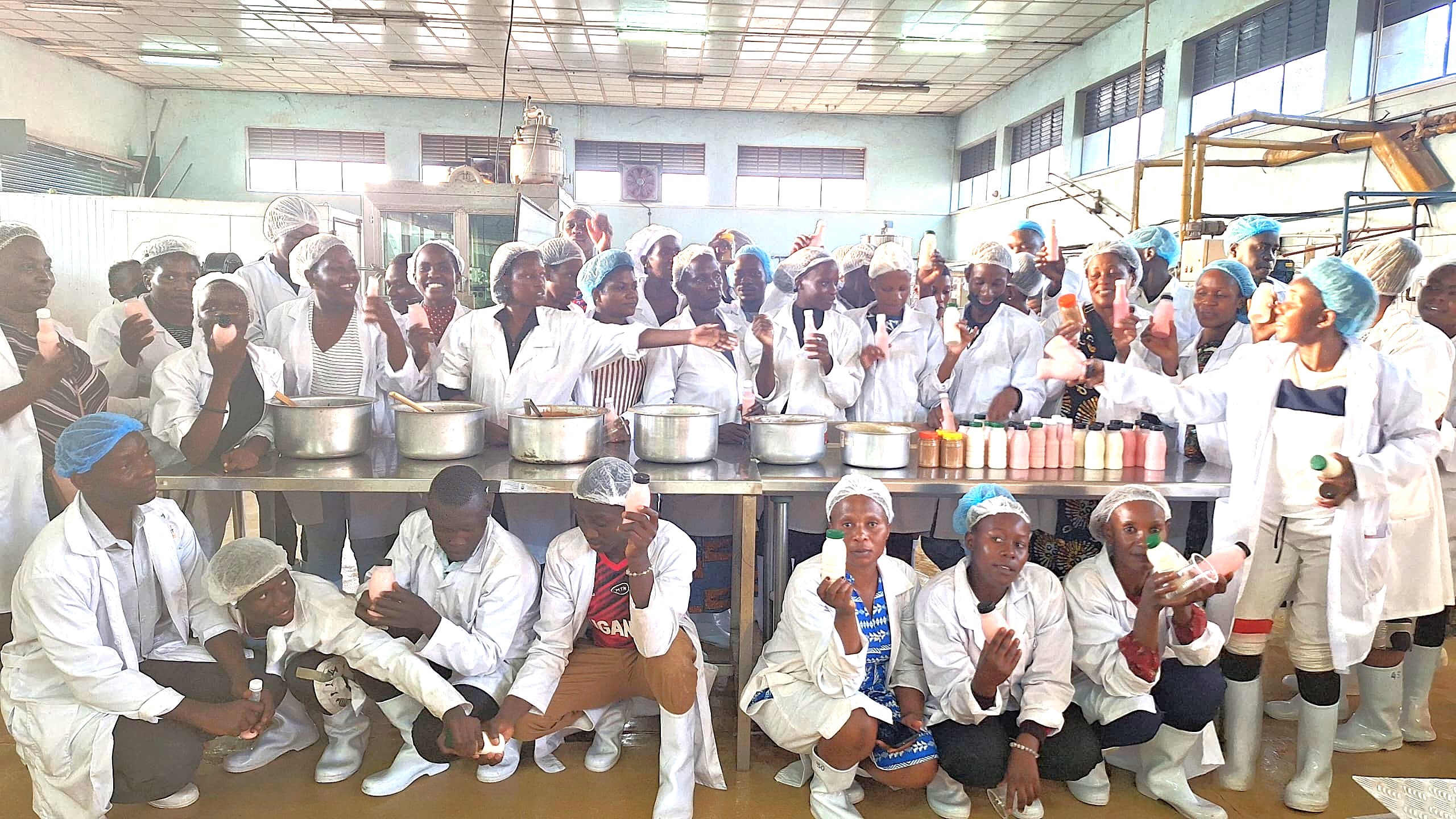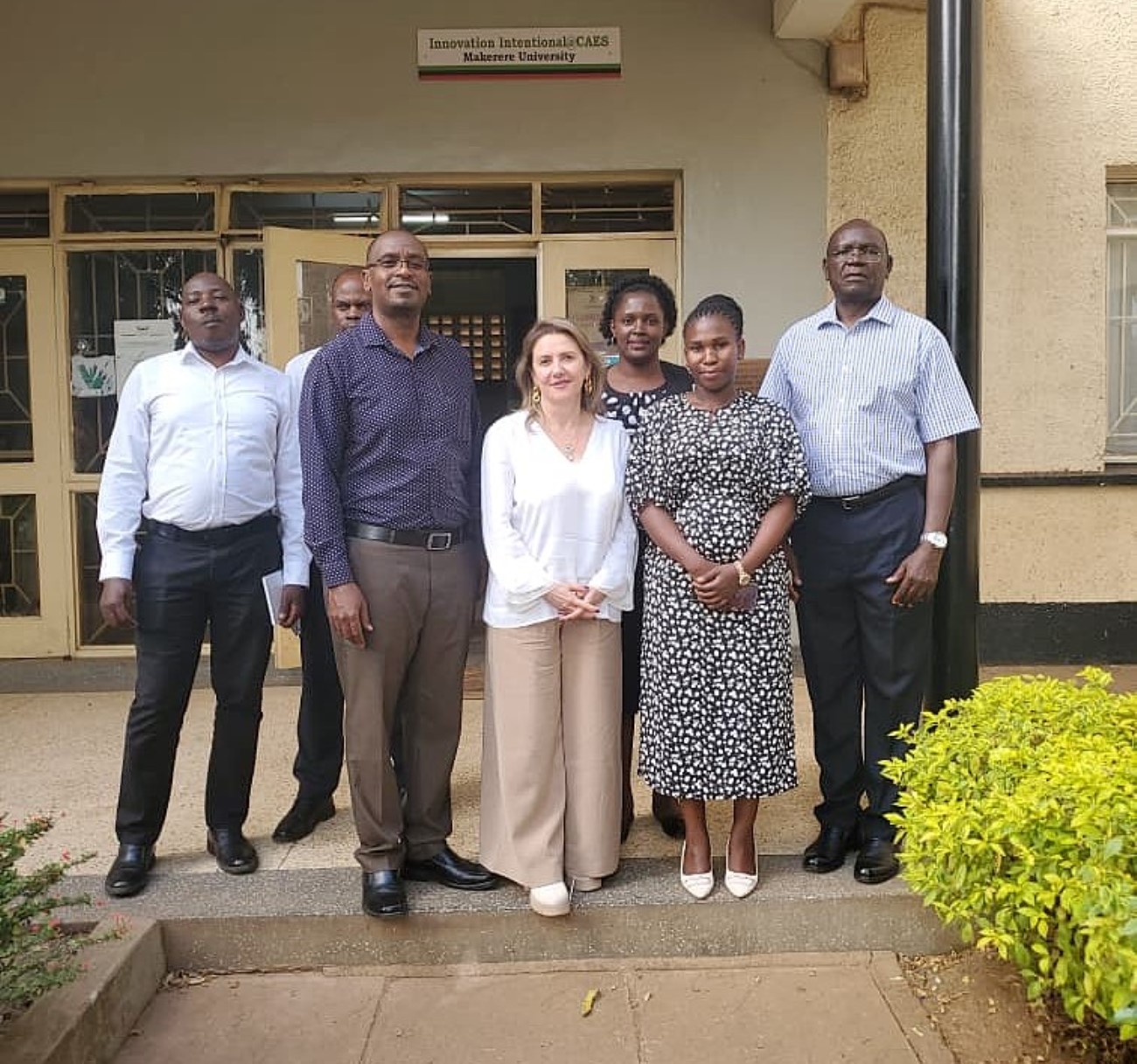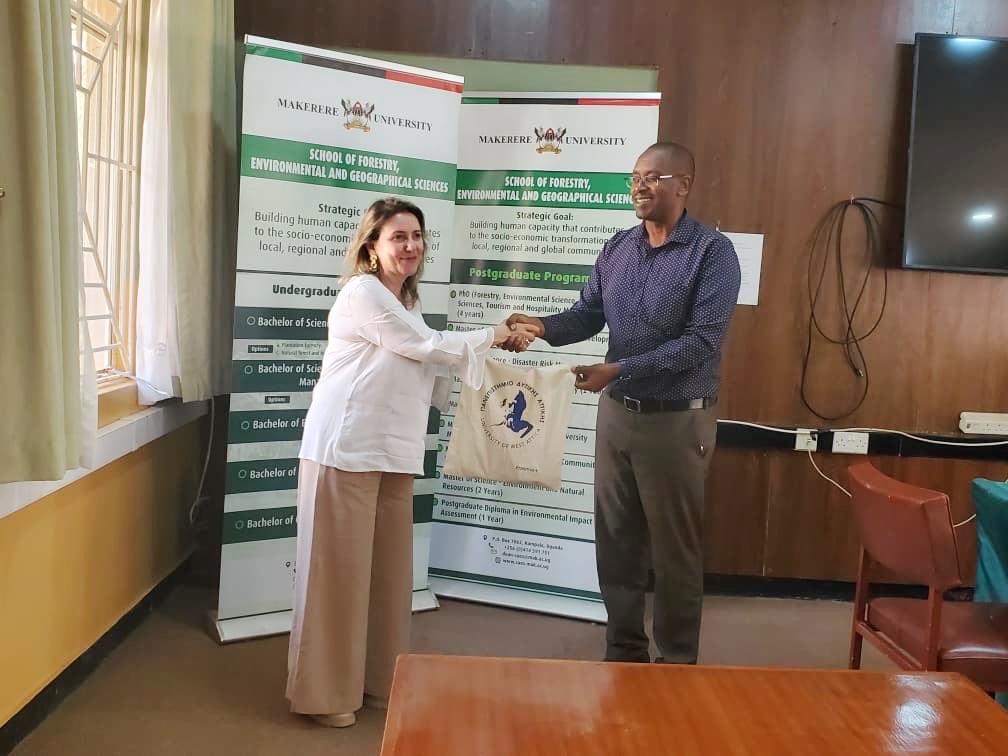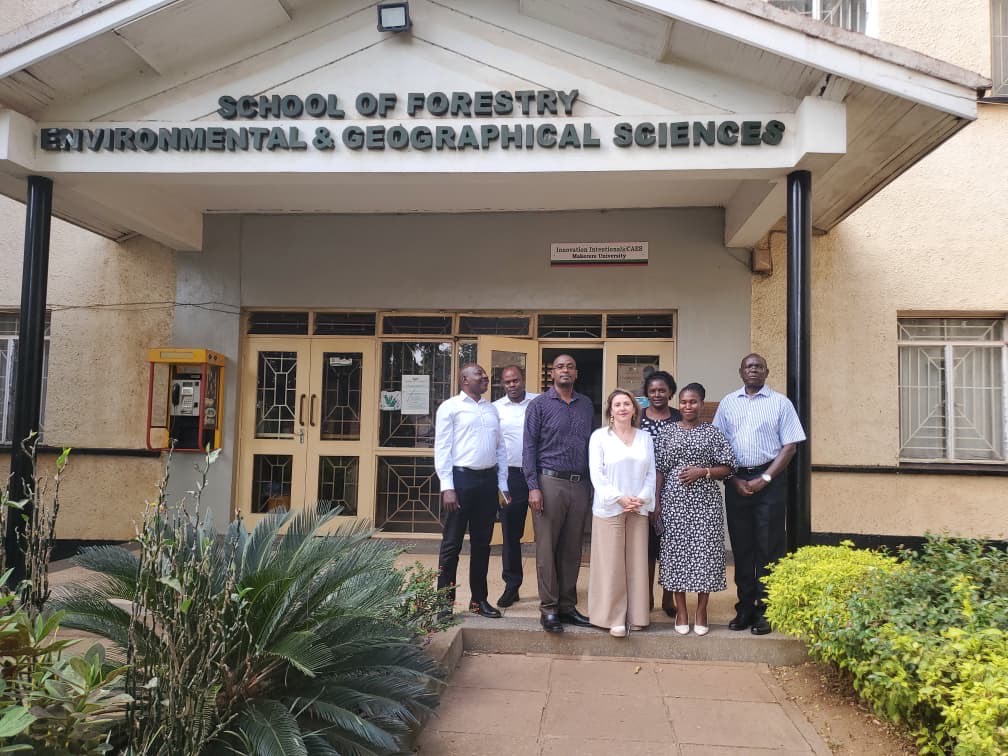Budongo Conservation Field Station (BCFS) is nestled on the eastern edge of Budongo Forest, a moist, semi-deciduous tropical rain forest comprising 435 square kilometers of continuous forest cover.
Budongo Conservation Field Station (BCFS) is nestled on the eastern edge of Budongo Forest, a moist, semi-deciduous tropical rain forest comprising 435 square kilometers of continuous forest cover.
 It has four main rivers: the Waisoke; the Sonso; the Kamirambwa and the Siba, which flow northwest towards the Albertine arm of the Great East African Rift valley.
It has four main rivers: the Waisoke; the Sonso; the Kamirambwa and the Siba, which flow northwest towards the Albertine arm of the Great East African Rift valley.
This idyllic setting plays home to students from the Faculty of Forestry and Nature Conservation (FFNC), who spend ten weeks of their recess term acquiring appropriate practical skills required of professional foresters. On 6th October 2010, a University Management team led by the Deputy Vice Chancellor, Finance and Administration Dr. Tickodri-Togboa visited Masindi, to acquaint themselves with the facilities used by students at BCFS as well as at other partner institutions like the Nyabyeya Forestry College (NFC).

The Dean, FFNC, Dr. Gorettie Nabanoga welcomed the team to the “home of mahogany” in Uganda. She highlighted FFNC’s uniqueness in being the only faculty that offers all three practical aspects of training in the form of; In-semester practicals, Recess term field practicals and Field/Industrial attachment.
“BCFS project helps us equip students with skills in natural forestry like ecology and wildlife conservation during the recess term, while the closer Katende Harambe in Namugongo hosts our students for the in-semester practicals,” said Dr. Nabanoga.
 Budongo is home to ‘The Royal Mile’, regarded as one of Uganda’s best forest bird watching sites. This mahogany-lined mile long forest avenue was one of King Kabalega of Bunyoro’s favorite places, hence its present day name. Thanks to 100years of strict conservation efforts, birdlife as well as indigenous tree species have thrived along Royal Mile’s 30km radius conservation area.
Budongo is home to ‘The Royal Mile’, regarded as one of Uganda’s best forest bird watching sites. This mahogany-lined mile long forest avenue was one of King Kabalega of Bunyoro’s favorite places, hence its present day name. Thanks to 100years of strict conservation efforts, birdlife as well as indigenous tree species have thrived along Royal Mile’s 30km radius conservation area.
“About 80% of the researchers that we receive here come from Europe and the United States. These conduct research on a wide range of projects, including community of chimpanzees that we’ve habituated within the last 20years, one of the two communities in Uganda which can be studied for psychology,” remarked Dr. Fred Babweteera, Director, BCFS, as he made his presentation.
 With regard to training and education, the station has managed to attract scholars from the Norwegian University of Life Sciences, St. Andrews University, Oxford University and Harvard University. Through these collaboration schemes, the revenue generated has been used to support Masters and PhD students at FFNC, Dr. Babweteera himself being a beneficiary. Some of the publications include Back to Budongo, the latest book by Prof Vernon Reynolds, who founded BCFS in 1990.
With regard to training and education, the station has managed to attract scholars from the Norwegian University of Life Sciences, St. Andrews University, Oxford University and Harvard University. Through these collaboration schemes, the revenue generated has been used to support Masters and PhD students at FFNC, Dr. Babweteera himself being a beneficiary. Some of the publications include Back to Budongo, the latest book by Prof Vernon Reynolds, who founded BCFS in 1990.
The team then proceeded to Nyabyeya Forestry College (NFC), where they were received by the Deputy Principal Mr. Gift Okojia. The Deputy Principal gave a brief background of the College, which started in 1932 at Kityerera in Mayuge District as a training ground for local forest workers to assist colonial foresters. The college was later transferred to its present day site, where it re-opened in 1948.
 Today, the college with an annual intake of approximately 400 students offers four Diploma Programmes in Forestry, Beekeeping, Agro forestry and Biomass Technologies; and three Certificate Programmes in Forestry, Beekeeping, and Carpentry & Wood Technology. NFC which also offers short courses in Energy & Nature Conservation as well as Tree nursery management and Landscaping collaborates with FFNC in terms of staff and student exchanges as well as co-utilization of facilities.
Today, the college with an annual intake of approximately 400 students offers four Diploma Programmes in Forestry, Beekeeping, Agro forestry and Biomass Technologies; and three Certificate Programmes in Forestry, Beekeeping, and Carpentry & Wood Technology. NFC which also offers short courses in Energy & Nature Conservation as well as Tree nursery management and Landscaping collaborates with FFNC in terms of staff and student exchanges as well as co-utilization of facilities.
 The team then went ahead to tour the Modern Biomass Technology power generating plant, capable of producing 150kilo-watts of electricity through gasification. Mr. Richard Kisakye a biomass expert at NFC explained the process “Gasification is the process of changing biomass in the form of wood chips, into gaseous form. The resultant gas can then either be used directly as cooking fuel, or put into a generator to produce electricity,” he elaborated.
The team then went ahead to tour the Modern Biomass Technology power generating plant, capable of producing 150kilo-watts of electricity through gasification. Mr. Richard Kisakye a biomass expert at NFC explained the process “Gasification is the process of changing biomass in the form of wood chips, into gaseous form. The resultant gas can then either be used directly as cooking fuel, or put into a generator to produce electricity,” he elaborated.
The NFC wood-based gasifier system is one of four pilot projects being conducted by The Energy Resources Institute (TERI), India, with support from the World Bank under the Energy for Rural Transformation (ERT) project, Ministry of Energy and Mineral Development (MEMD). The other projects are: A 30kilo-watt wood-based gasifier system for large-scale cooking at King’s College Budo; A 100% biomass gasifier-based power plant at Kyambogo University for demonstration and training purposes; and A study for electrification of Kalangala Island through the use of gasification technology.
Downloads
The Dean, FFNC’s presentation
The Director, BCFS’s presentation
Nyabyeya Forestry College: A brief background
Contacts
Nyabyeya Forestry College
Masindi, Uganda.
Tel: +256-392-301114/+256-465-20370-5
Email: nfc@infocom.co.ug
Fred Babweteera (PhD)
Director, Budongo Conservation Field Station (BCFS)
P.O. Box 362
Masindi, Uganda.
Tel: +256-414-543647/+256-772-766336
Mob: +256-772-466336
Email: babweteera@forest.mak.ac.ug or babweteera@gmail.com
mwamai@admin.mak.ac.ug, Public Relations Office

 General1 week ago
General1 week ago
 General1 week ago
General1 week ago
 Health3 days ago
Health3 days ago
 General1 week ago
General1 week ago
 General2 weeks ago
General2 weeks ago
